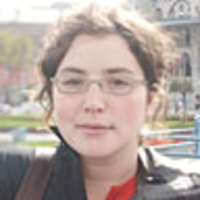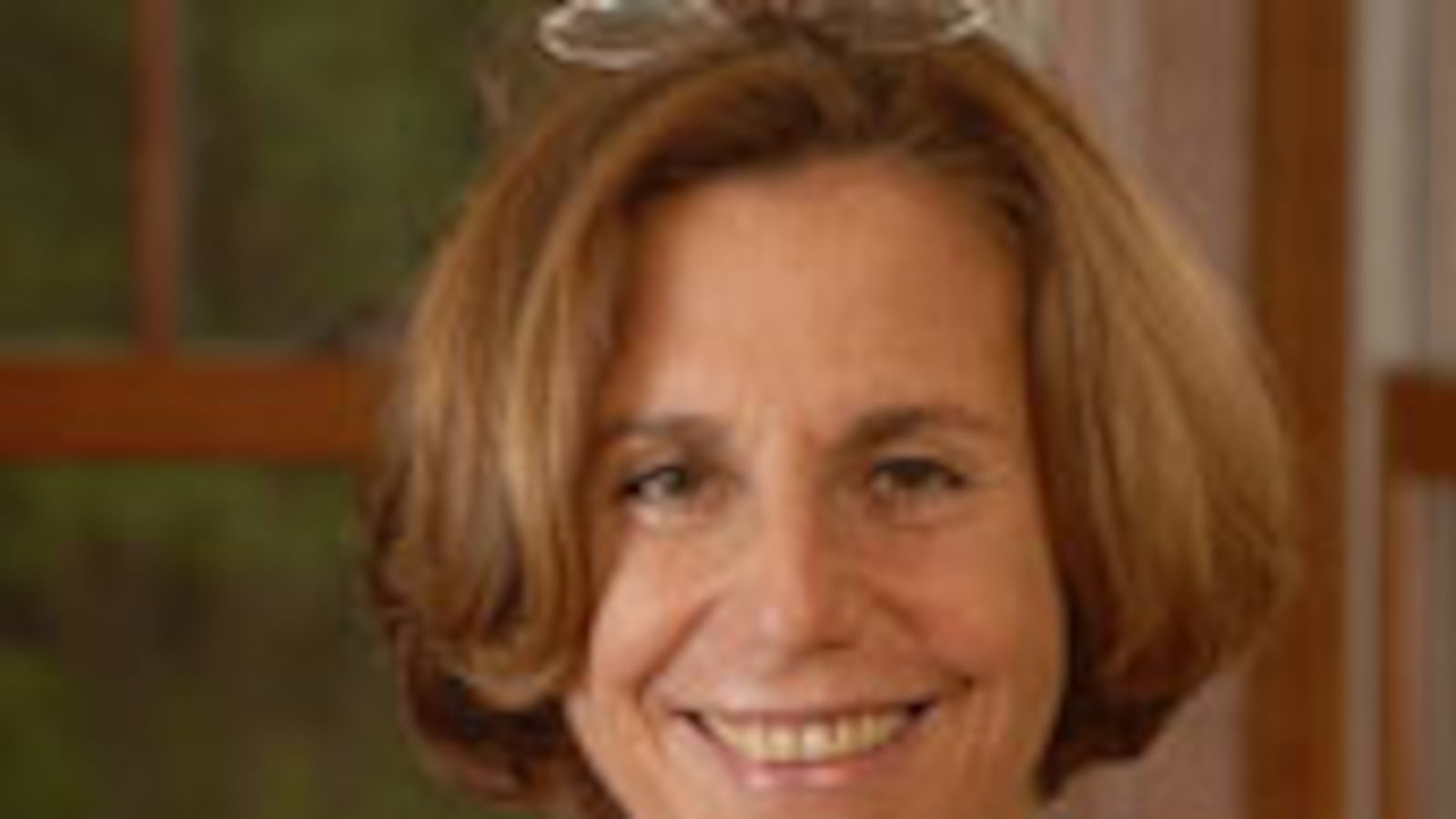
What is that white lady doing with that handful of ginseng roots and bonito flakes? “I think I was Chinese in another life,” says Nina Simonds. And she’s serious, though it would have been hard to predict the journey of how a nice Jewish girl from rural Massachusetts became one of the country’s leading authorities on Asian food and cooking. Nina speaks fluent Mandarin and can go wok to wok with anyone on nuances of Chinese food and culture.
Nina’s interest in Asia was ignited by the promise of meeting boys in language class. And she’s still got that eccentric flirtiness, but with a bit more gravitas to back her up, including IACP and James Beard awards for her books A Spoonful of Ginger and Spices of Life. Her books not only center on delicious recipes, but what it is about the ingredients and techniques that make Chinese food so restorative and healthful. Before you even dig into the recipes, she suggests you do a self-assessment as to whether your body type is yin or yang. Nina has lots to say about this (Nina has lots to say about lots of things), but the Hippocrates quote she chose to introduce A Spoonful of Ginger sums it up quite poetically: "Let food be your medicine and medicine be your food."
Hungry Beast caught up with Nina and she told us about her life and travels, including the fact that she is a ketchup fan and that she knows how to blow a Peking duck.
When you were 19, you left the U.S. and moved to Taiwan for three years. How did that happen?
I wanted to study food language and culture. And originally, in the early ‘70s, I thought of going to Paris and studying and working in a French cooking school. I wrote to Julia Child who wrote back and said there really wasn’t a great cooking school in Paris at that time. She suggested Switzerland, and I just said, “Forget Switzerland.” When Julia wrote back and said “No Paris,” I thought, “Well, maybe I should go to China.”
That's funny advice coming from Julia. How did you make the mental jump from France to China?
I had been taking some Mandarin in high school. I lived in Andover, Massachusetts, and I was good at languages. Andover Academy started offering Mandarin and they accepted two people from the local high school to come study. I was interested, and I also wanted to meet boys. So I took some Mandarin.
But when I started to plan, China was in the middle of a cultural revolution, so I couldn’t go there. I bumped into an old classmate who had been to Taiwan and she gave me the name of a woman who maybe could sponsor me. I wrote to her and she turned out to be a famous cook. I sent her a high-school graduation picture to identify me and I took off. I just got on the flight and it wasn’t until maybe we were in the 24th hour of travel when I thought, “Where the hell am I going?”
No kidding. Asia must have seemed totally inaccessible at that time.
My parents thought I was insane.
Not surprising. How long did you stay there?
Three and a half years. I really loved it. It was lonely at first, but it was such a great adventure. I loved living in this really exotic place, completely unlike any place I’d ever been in my life. I stayed with a family and we fired the servant after a month and I started cooking. I would go to the cooking school and come home, make what I’d learned for the family, and the mother would criticize me.
What were some of the things you learned to cook?
I apprenticed at a restaurant where they made these incredible steamed buns and they would sprinkle the steamers with pine needles, which would release the fragrance of pine needles. I learned how to blow a Peking duck. Like, actually how to separate the skin from the meat and blow into it.
So what happened after Taiwan?
I came back to the U.S. and was trying to figure out what to do and I contacted Julia Child again and she said, “There is a great cooking school in Paris now. So maybe you could exchange your Chinese for French.” Julia Child was one of my favorite people to cook for and eat Chinese food with. She and her husband, Paul, lived in China and developed a passion for the food.
Julia introduced me to Anne Willan, who had opened a cooking school in Paris (La Varenne). She was open to me working in exchange for studying French food. So I went over to Paris and was there for a year. I started catering Chinese and teaching Chinese cooking at night and I loved Paris. Maybe I wouldn’t have left if it hadn’t have been for this man I met, from Ohio. So then I moved from Paris, France, to Toledo, Ohio.
Was there a big Asian food scene in Toledo?
Then, there wasn’t. People were really not very sophisticated. But they really wanted to learn about real French food and real Chinese food. Rick Bayless was living nearby in Ann Arbor. I stared a cooking program in a store in Toledo and Rick Bayless had come back from Mexico and he was trying to figure out what to do in Ann Arbor. And he taught some of his first cooking classes in this school that we stared in the store. It was really neat. That was a long time ago.
Yes, almost 40 years ago. China, Taiwan, and Asia in general have all changed politically and socially so much over that time. How do you see the changes in the food and in the way people eat?
In those days, Chinese food in China was extremely regional because they didn’t have the transportation to get the ingredients (to more remote areas) and nobody had money. But that’s really changed dramatically. I remember going to China and seeing tomatoes and strawberries in northern China for the first time, and that really happened when the free markets came in. To see how much they’ve prospered and industrialized is incredible. On the one hand it’s very exciting, but on the other hand it’s almost a tragedy. Because they’re becoming more Western, but they don’t want to repeat the mistakes of the West.
In what ways do you see the Chinese working to reverse the effects of Western food trends?
They’re trying to learn from the mistakes of the West. I’ve been invited to China to speak at a conference about food trends and health, which is very exciting. We’re going to talk about good trends that are going on here like limiting portion sizes, accentuating fresh, local ingredients, and going back to the lifestyle that they used to have in China.
A lot of your success has been around healthy cooking…
Delicious healthy cooking! That’s really, really important because I think people think of “health” and they just think of sacrifice. And I can’t blame them. Our perception of tasting healthy food is that it isn’t so great or sumptuous. I believe in balance so I think that it’s not a good idea to just outlaw foods, to say you can’t ever eat something. Let's face it: There are days every now and then when I crave a hamburger. But I think it’s healthy to not deprive yourself because then if you indulge, you can indulge with balance.
What food, besides a hamburger, do you indulge in?
I like to pick at my son’s macaroni and cheese, Annie’s or Kraft.
As a mother, was it hard to teach those philosophies to your son?
Of course, he wanted fast food. But he’s a lot more aware of healthy eating than most kids because it was something we talked about a lot. I tried not to be real obnoxious, though. Let's face it: If you’re a Nazi as a parent, it’s going to come back and haunt you. So I think you have to be a little clever about it all. I really tried not be a Nazi. Now he cooks—he became interested when he realized he could impress girls with cooking.
What do you cook for him that he loves?
Pan-fried noodles and my sour cream coffee cake. But when he was young, he was very picky. I made him baby food from scratch and he preferred the jars. My husband blamed me and my intensity with food (for my son’s eating habits). And it turns out that my husband only ate one thing when he was growing up: hamburgers! My son does eat vegetables now, which he never did when he was young. He really still loves ketchup, but I do, too. What can I say? It’s a great condiment.
Plus: Check out Hungry Beast, for more news on the latest restaurants, hot chefs, and tasty recipes.
Sarah Whitman-Salkin is an editor at Cookstr.com. She lives in New York City.






